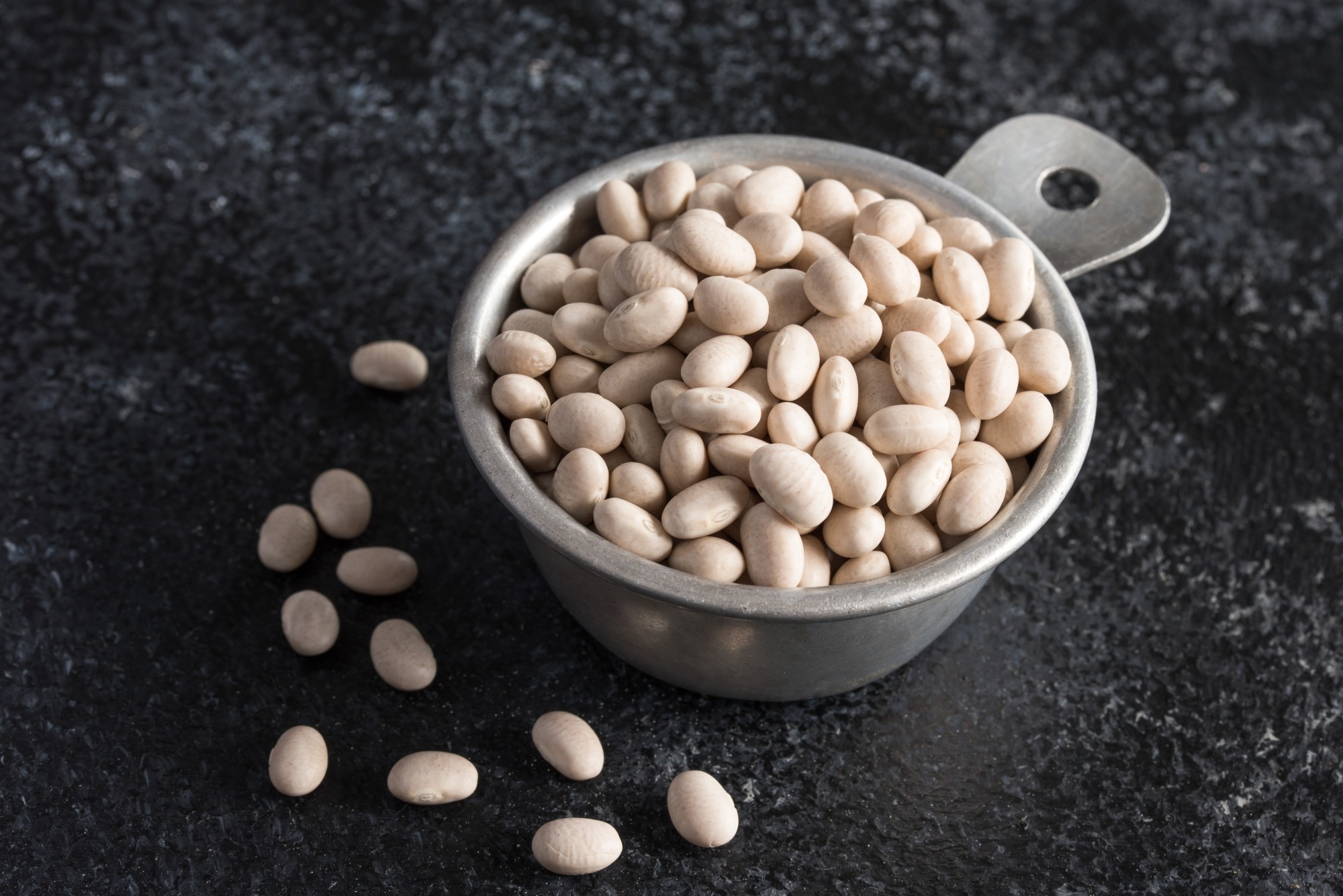The long-term follow-up of this low-risk, non-invasive trial named ‘The Beans to Enrich the Gut Microbiome vs. Obesity's Negative Effects (BE GONE)’ conducted at MD Anderson Cancer Center in Texas, United States (US) is ongoing.
 Study: Modulating a prebiotic food source influences inflammation and immune-regulating gut microbes and metabolites: insights from the BE GONE trial. Image Credit: Michelle Lee Photography/Shutterstock.com
Study: Modulating a prebiotic food source influences inflammation and immune-regulating gut microbes and metabolites: insights from the BE GONE trial. Image Credit: Michelle Lee Photography/Shutterstock.com
Background
Studies have shown that patients with obesity, unhealthy diets, and a history of colorectal cancer or precancerous polyps often experience long-term imbalances in their gut microbiome, even after successful cancer treatment or polyp removal.
Adjusting the diet to modify the gut microbiome appears to be a promising strategy for managing patients at high risk. However, a significant challenge is ensuring that these individuals, particularly those recovering from cancer, can successfully adopt and tolerate dietary changes.
In this context, the small, white navy bean stands out. It's a nutrient-rich food that's both affordable and widely available. Acting as a prebiotic, navy beans may play a key role in restoring diversity to the gut microbiome. This could potentially improve both the gut and metabolic health of cancer survivors.
A growing body of evidence suggests that these patients have gut dysbiosis due to metabolic dysregulation in the production of branched-chain amino acids, increased gut permeability, and low-grade endotoxemia.
About the study
In the present study, researchers first subjected all enrollees to a four-week equilibration/run-in period, followed by random division into two groups.
The first group (control) comprised participants on a usual diet without dry beans (control), and the other group (test) began an eight-week intervention diet.
The intervention diet involved gradually adding navy beans to the participants' usual diet (1 cup/day) for eight weeks and supplemented with 16 g dietary fiber, 14 g protein, and 220 kcal.
It was followed by an immediate crossover to the control diet, which facilitated cross-arm comparisons of changes in stool and blood markers every four weeks throughout the eight-week intervention to measure compliance during the on-intervention period.
The primary outcome was on-intervention intra and inter-individual changes in the gut microbiome. Specifically, they assessed the gut microbial alpha diversity, the relative abundance of individual taxa, and beta diversity distances from 16S ribosomal ribonucleic acid (rRNA) gene profiles for each subject at each time point.
The researchers also assessed the stability of these measures during the "return to control" and "remain on control" periods.
Furthermore, the researchers performed a global metabolomic analysis in parallel to identify changes in circulating metabolites (proteomic biomarkers) associated with the intervention and changes in microbial composition.
Results
The study began with initial contact with 240 individuals, out of which 71 gave their consent to participate. Ultimately, 69 individuals participated in the 16-week trial, with a completion rate of 87%. Out of these, 48 participants were included in the intent-to-treat (ITT) analysis.
The study observed that the eight-week intervention led to a slight increase in fiber consumption for most participants, who initially had a dietary fiber intake below the recommended threshold.
Although some participants reported experiencing mild to moderate bloating and changes in bowel habits, overall adherence to the dietary intervention prescribed in the study was high.
Notably, those who experienced changes in their bowel habits also saw an increase in the diversity of their gut microbiome during the intervention period.
A linear mixed model analyzing temporal changes in microbial taxa showed that some bacterial taxa decreased post-dietary intervention and others increased, with more significant shifts in alpha and beta diversity in older participants.
Interestingly, some bacteria that shifted on intervention were sulfur-metabolizing species (e.g., Bilophila wadsworthia) that have established links to colorectal cancer.
Shotgun metagenomic sequencing of 140 samples from 48 participants confirmed the consistency of these results.
Further, it showed how the prebiotic dry bean intervention downregulated microbial gene content pathways associated with branched-chain amino acid biosynthesis and fermentation. Metagenomic sequencing also revealed increases in Eubacterium rectale and Bifidobacterium adolescentis species.
The study intervention increased the inverse Simpson index scores, an indicator of microbial alpha diversity, indicating a more balanced distribution of all bacteria types.
The relative abundance of Roseburia and Streptococcus declined while that of Faecalibacterium surged.
Concerning effects on the host metabolome, pipecolic acid (PA) and S-(5'-Adenosyl)-l-methionine (SAM) increased during the intervention, while an indole-derivative decreased.
Likewise, trigonelline and theophylline increased during the intervention but did not change when participants switched to the control. Furthermore, the bean “dose” was sufficient to improve LDL and overall metabolic health.
Furthermore, the dry bean intervention led to an increase in fibroblast growth factor (FGF-19), a decrease in the levels of interleukin ten receptor alpha (IL10ra), and several other immuno-oncology cytokines, e.g., programmed cell death 1 ligand 1 (PD-L1). All these microbial metabolites and biomarkers have potential therapeutic relevance.
Conclusions
This trial demonstrated that adding one cup of prebiotic navy beans to the usual diet was a safe and scalable strategy to modulate the gut microbiome of colorectal cancer patients, who may not comfortably sustain other dramatic changes without support.
In fact, prebiotic foods show the potential to become a prominent component of adjunct dietary regimens for patients with inflammatory bowel disease and diabetes as well.
Future research should advance understanding of the metabolites and biological markers that might complement this dietary strategy and improve clinically relevant outcomes attained with prebiotic foods.